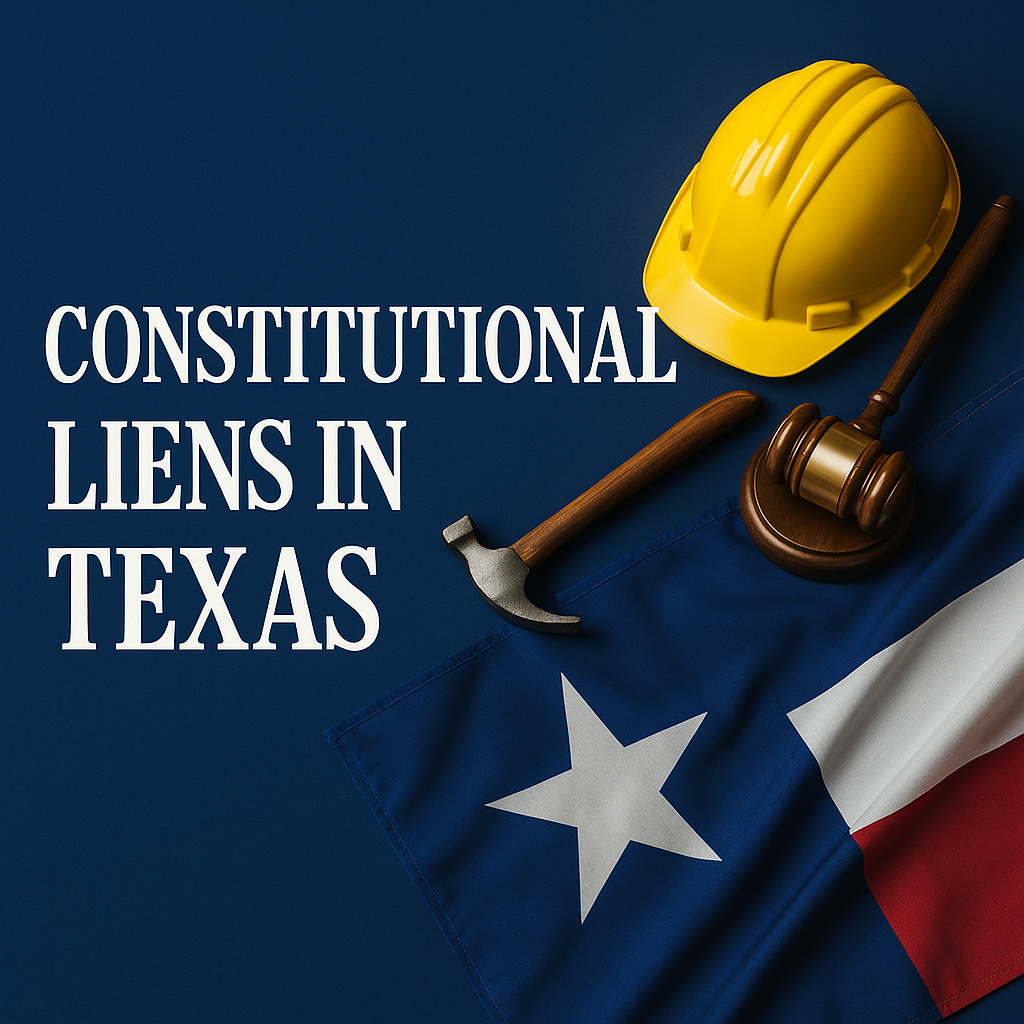
In Texas, contractors and tradespeople have a unique legal tool available to them: the constitutional lien. Unlike statutory mechanic’s liens, which require strict compliance with the Texas Property Code’s notice and filing requirements, a constitutional lien arises directly from the Texas Constitution. This makes it an important protection for certain contractors who improve real property in the state.
The Constitutional Basis
Article XVI, Section 37 of the Texas Constitution provides:
"Mechanics, artisans and materialmen of every class, shall have a lien upon the buildings and articles made or repaired by them for the value of their labor done thereon, or material furnished therefor; and the Legislature shall provide by law for the speedy and efficient enforcement of said liens."
This provision is self-executing, meaning contractors meeting its requirements can assert a lien without having to follow all of the statutory lien process.
Who Qualifies?
Not every contractor or supplier can claim a constitutional lien. Texas courts have limited its application:
● Direct contractors (original contractors): The lien is available only to those who contract directly with the property owner.
● Subcontractors and suppliers: Generally, they cannot rely on the constitutional lien and must follow statutory lien procedures.
Requirements for a Valid Constitutional Lien
Although it arises automatically, several conditions must be satisfied:
● Direct Contract with the Owner: The claimant must have provided labor or materials under a contract with the owner of the property (not with a general contractor).
● Improvements to Property: The lien applies to labor performed or materials supplied for construction or repair of a building or improvement on the property.
● Identification of Property: The lien attaches to the building or improvement created or repaired—not necessarily the underlying land unless properly extended under statute.
Advantages of a Constitutional Lien
● No Notice Requirement: Unlike statutory liens, there is no requirement to send monthly notices to the owner.
● No Filing Requirement (initially): A constitutional lien exists even if the contractor does not record an affidavit in the county records.
● Strong Leverage: Because it is rooted in the Constitution, it can be enforced even if procedural missteps prevent a valid statutory lien.
Limitations to Keep in Mind
● Enforceability: While the lien arises automatically, most contractors still record a lien affidavit to provide public notice and to facilitate foreclosure.
● Owner-only Protection: It protects only those contracting directly with the property owner—not lower-tier contractors or suppliers.
● Litigation Still Required: To collect, the lienholder often must bring a foreclosure action in court.
✅ Takeaway: A constitutional lien in Texas is a powerful, automatic protection for contractors who contract directly with property owners. It arises without filing or notice, but it’s still wise to record and enforce the lien properly. Subcontractors and suppliers, however, must rely on statutory lien rights.
At David C. Barsalou, Attorney at Law, PLLC, we help clients navigate business, family, tax, estate planning, and real estate matters ranging from document drafting to litigation with clarity and confidence. If you’d like guidance on your situation, schedule a consultation today. Call us at (713) 397-4678, email barsalou.law@gmail.com, or reach us through our Contact Page. We’re here to help you take the next step.